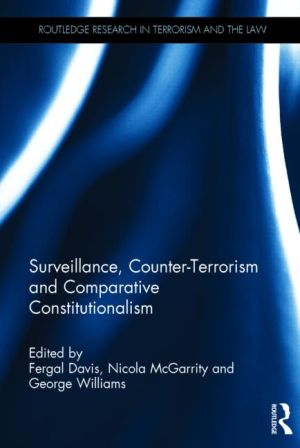We are now closed for the Christmas and New Year period, returning on Monday 5th January 2026. Orders placed during this time will be processed upon our return on 5th January.

The decade after the September 11, 2001 terrorist attacks saw the enactment of anti-terrorism laws around the world that challenged understandings and assumptions about public institutions, human rights and constitutional law. Many of those laws remain on the statute books and continue to have a profound impact on constitutionalism and the rule of law. One of the most striking and rapid areas of development has been the conferral of increased powers of surveillance on law enforcement and intelligence agencies. The chapters in this edited book examine the impact of these powers on constitutionalism at both the domestic and international levels.
The book discusses the prevalence of mechanisms of mass surveillance; the challenges that technological developments pose for constitutionalism; new actors in the surveillance state; the use of surveillance material as evidence in court and the difficulties of balancing secrecy and fair trial requirements; and the effectiveness of constitutional and other forms of review of surveillance powers. The contributors to the book who are leading international experts in anti-terrorism and constitutional law take a comparative approach looking at jurisdictions including the United States, Canada, United Kingdom, Europe, Israel, India, Japan, China and Australia. The book draws important conclusions about the constitutional implications, short- and long-term, domestic and international, of the expansion of surveillance powers after 9/11.